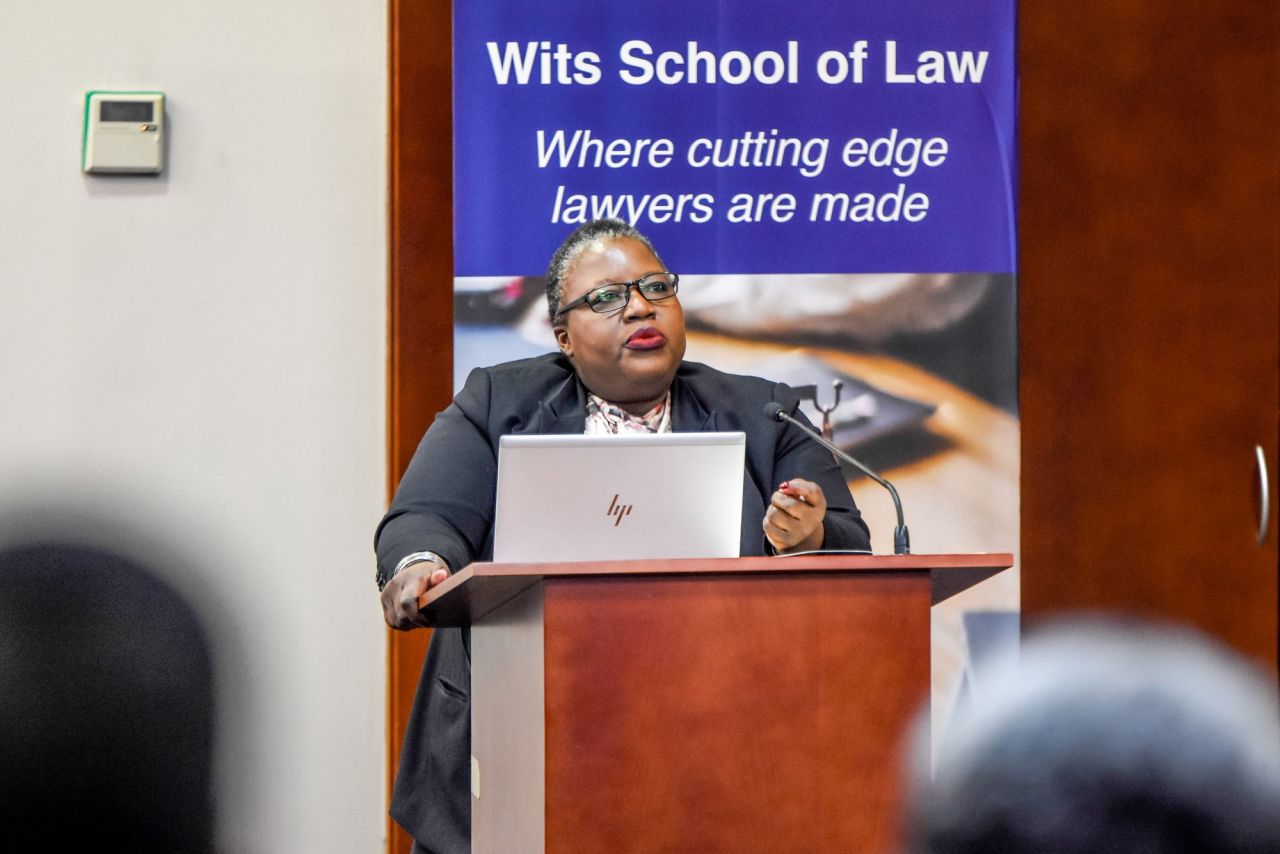Women judges continue to play an indispensable role in judiciaries across Africa. Despite gains in made towards greater representation in judiciaries, women judges and legal professionals face numerous gender-related challenges.
In this connection, the International Commission of Jurists, together with the University of Witwatersrand School of Law and the African Judiciaries Research Network will convene a workshop on 17 – 18 March in Johannesburg to discuss ways to confront these challenges.

The event, which will be opened by a keynote address by South Africa’s first woman Chief Justice, Mandisa Maya, will also serve to celebrate the contribution of the late Justice Yvonne Mokgoro, who was an ICJ Commissioner and one of the first two women appointed as a judge of the Constitutional Court of South Africa.
In her last public address given as a Commissioner of the ICJ, Justice Mokgoro made an passionate call for the South African Commission for Gender Equality and civil society groups to:
“continue to hold the state accountable to giving effect to section 9(2) and 174(2) of the Constitution by appointing more women judges. Though there has been progress over the years in the appointment of women, we are yet to achieve a judiciary that is reflective of gender composition of the country.”
While noting the importance of representation, she warned that “mere representation is not enough” and that it was necessary:
“to ensure that the judicial officers – of all sexes and genders – are equipped to understand and respond effectively to gender-related arguments, the South African Judicial Education Institute must be supported to expand its existing workshops for judicial officers on socio-economic rights to incorporate a gendered lens. Indeed, gender-discrimination and gender-inequality should be weaved throughout all judicial education efforts.”
The workshop will gather researchers, legal practitioners, civil society organizations and judges together to discuss the role of women in African judiciaries both in South Africa and the African continent more broadly.
ICJ Africa Director, Kaajal Ramjathan-Keogh observed that:
“Africa has the world’s largest number of women heading constitutional courts and in positions as chief justices. Women have become judges, heads of judiciaries and have taken their seats in international courts, and their impact is visible.”
“The ICJ is proud to celebrate Justice Yvonne Mogkoro, a former ICJ Commissioner, as one of the leaders of this movement and acknowledges and recognises women’s roles in judiciaries in Africa. We are also delighted to have Chief Justice Mandisa Maya participate in this event”, she added.

Contact:
Kaajal Ramjathan Keogh: kaajal.keogh@icj.org
Resources
Commissioner Yvonne Mokgoro’s speech titled “Engendering Economic, Social and Cultural Rights in South Africa” (14 August, 2019), is available in full here.
Background
According to the 2023 World Justice Project Index, women face greater barriers to justice than men in nearly 70 percent of countries surveyed. A recent study published by UN Women and the UNDP on Women in Justice in Africa addresses the role of women in judiciaries in Africa. The report notes:
“Africa has the world’s largest number of women heading constitutional courts and acting as chief justices. This historic fact can play a role in over-coming gender inequality across a range of areas – broadly in society, but also specifically within the justice system.”
The report also concludes that there is some evidence which shows that “women judges are less susceptible to corruption, and their effective representation in the judiciary increases trust in the system”.
Ongoing challenges include: the limited number of women who make it to top positions within judiciaries; social and institutional discrimination; harassment and intimidation; and breaches of privacy. Overall, in 10 countries surveyed for the UN report, women made up approximately 40 percent of all judges.
Under international standards women should be equally represented in all decision-making authorities, as affirmed by the Committee on the Elimination of all forms of Discrimination against Women In its General Recommendation 23, as well as in the Maputo Protocol which applied to the Africa region.
With regard to a gendered approach to decision making, the ICJ’s “Bangkok General Guidance for Judges on Applying a Gender Perspective in South and Southeast Asia” sets out recommendations. The Bangkok General Guidance is equally applicable to Africa. This workshop will be an important step in considering elements for a contextual application of the Bangkok General Guidance to the African region, which the ICJ will continue to develop in consultation with women in African judiciaries in particular.
In September 2024, South Africa appointed its first women Chief Justice, when Chief Justice Mandisa Maya assumed this position. This came a few months after Justice Yvonne Mokgoro, South Africa’s first black women judge, and an ICJ Commissioner passed away. As of September 2024, 46 percent (113 of 248) of judges in the country were women. In the lower courts, women magistrates made up 52 percent (866 of 1 652) of the magistrates across the country. Nonetheless, as noted by Judges Matter, women continue to face challenges in the judiciary, and in particular in being appointed to positions of authority within judiciaries. The problems noted by Judges Matter include: a lack of women in judicial leadership; family demands on women judges; sexism and sexual harassment with the judiciary; and unfair work allocation.








